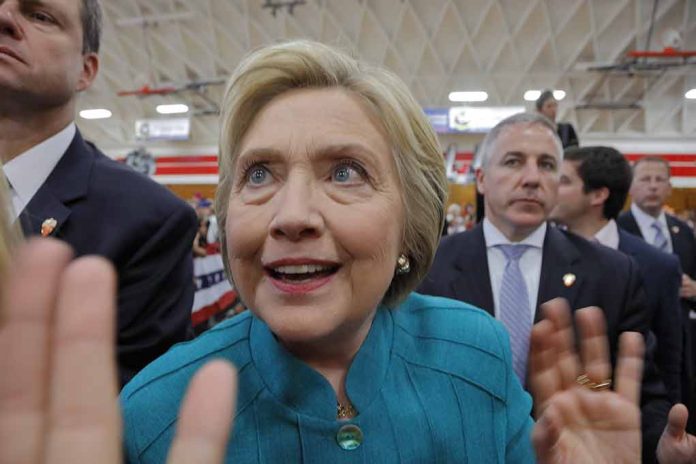
Judge James Boasberg, appointed by Obama, protected Hillary Clinton’s campaign by delaying the release of her emails until after the 2016 election, raising serious questions about judicial impartiality.
Key Takeaways
- Judge Boasberg ruled that most of Clinton’s emails would not be released until after the 2016 Election Day, limiting voter access to potentially critical information.
- Conservative group Judicial Watch filed lawsuits to make Clinton’s emails public, but Boasberg set a timetable that heavily favored Clinton’s campaign.
- The State Department was only ordered to process a small fraction of the Clinton emails before the election.
- The same judge has recently made headlines by blocking President Trump’s deportation efforts targeting violent Venezuelan gang members.
- Critics argue Boasberg’s rulings suggest a pattern of deference to Democratic interests while imposing stricter scrutiny on Republican administrations.
Clinton’s Email Timeline Conveniently Delayed
In what many conservatives view as a clear case of judicial favoritism, U.S. District Judge James Boasberg ruled in 2016 that thousands of Hillary Clinton’s emails recovered during an FBI investigation would not be made public until after Election Day. The ruling effectively shielded Clinton from potential fallout that could have influenced voters’ decisions at a critical moment in the presidential race. The timing of this decision has remained a point of contention among those concerned about the integrity of the judicial system and its impact on democratic processes.
Conservative watchdog group Judicial Watch had aggressively pursued the release of these documents through multiple lawsuits filed under federal disclosure laws. Despite their efforts to bring transparency to Clinton’s communications during her tenure as Secretary of State, Boasberg established a processing schedule that heavily favored Clinton’s campaign timeline. The State Department was instructed to process just a small portion of the approximately 15,000 recovered documents before Americans went to the polls.
Public Right to Know vs. Administrative Convenience
Judicial Watch President Tom Fitton did not mince words about the situation at the time, describing the process as “corrupt” and arguing that it deliberately deprived American voters of information essential to making an informed choice at the ballot box. The organization maintained that the public had a right to review these communications before casting their votes in such a consequential election. Their argument centered on the principle that voters should have access to all relevant information about candidates seeking the highest office in the land.
“Well I think there’s a lot of people who think there’s a bias. After all, as you mentioned Benny, this is the guy who said, ‘turn the flight around, bring all the bad guys, the hardened criminals who were here illegally who did terrible things, bring those folks back to America.’ This is the judge who was there on the FISA court when they issued the warrants to spy on President Trump’s campaign eight years ago. So, there’s a history there and yet no, no recusal, he’s going to get the case,” said Republican Representative Jim Jordan.
While Boasberg’s ruling significantly delayed public access to Clinton’s emails, it could not prevent the later discovery of additional Clinton emails on Anthony Weiner’s laptop. This discovery prompted then-FBI Director James Comey to reopen the investigation into Clinton’s handling of classified information just days before the election. Many political analysts consider this late development a significant factor in Clinton’s eventual defeat to Donald Trump.
Pattern of Judicial Inconsistency
The pattern of Boasberg’s rulings has continued to raise eyebrows among conservatives. Most recently, he blocked President Trump’s deportation efforts targeting members of the notorious Venezuelan gang Tren de Aragua. Despite the administration’s use of the Alien Enemies Act of 1798 to justify the deportations, Boasberg ruled against the government. This decision, coupled with his now-prominent role in a new lawsuit regarding military officials’ use of the Signal messaging app, has intensified scrutiny of his judicial philosophy and potential political leanings.
“Supposed to be random, but Judge Boasberg could recuse himself from this case … if there’s a preceded bias, a potential for bias, if there’s a conflict,” Republican Representative Jim Jordan said.
Critics point to what they see as a troubling double standard: Boasberg appears to have granted substantial deference to the Obama administration in the Clinton email case, accepting administrative convenience arguments to delay the release of potentially damaging information. Yet, when faced with the Trump administration’s national security arguments regarding the deportation of criminal aliens, the judge has shown considerably less deference. These contrasting approaches have only intensified concerns about the influence of personal politics on judicial decision-making in cases involving high-profile political figures.
Sources:
- Who is James Boasberg, the judge in Trump administration immigration fight? | Reuters
- Judge James Boasberg had nonpartisan record before facing Trump’s fury | CNN Politics
- MAGA Questions Judge Boasberg Assignment to Signal Lawsuit: ‘Rigged’ – Newsweek
- Can You Guess Which Judge Protected Hillary by Delaying Release of 15k of Her Emails Until After the 2016 Election?














